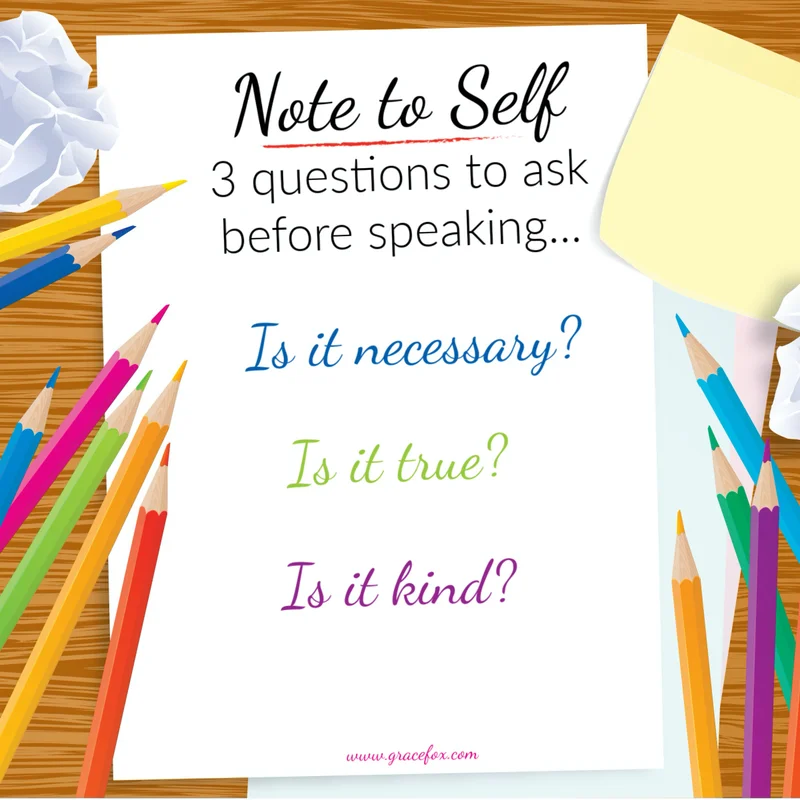3 Helpful Tips for Taming the Tongue

How easy it is to spout off when we feel our opinion is not being respected. Or when we’re bone weary. Or when we believe the person is flat-out wrong.
Taming the tongue isn’t easy
This is true at any time, but moreso in the current political climate. How many times in the past couple of years have you forced yourself to refrain from saying something regrettable? Or perhaps you didn’t: You expressed an opinion contrary to a friend or family member’s and sparked a verbal firestorm. In retrospect, we all have moments when we realize that some things go better left unsaid, right?
Spouting off is easy
How easy it is to spout off when we feel our opinion is not being respected. Or when we’re bone weary. Or when we believe the person with whom we’re speaking is flat-out wrong. How easy it is to engage our tongue inappropriately when we want to prove a point or before we collect all the facts.
Proverbs 18:13 says this about the latter: “Spouting off before listening to the facts is both shameful and foolish.”
Ouch. Wouldn’t it be nice if we could hit a delete button the moment we say something regrettable so our words would vanish before they reach the listeners’ ears?
The tongue may be small but it’s mighty
So mighty, in fact, that humanity can’t tame it. It’s a “restless evil, full of deadly poison.” (James 3:7-8) It causes irreparable damage when used to criticize, gossip, and lie. On the other hand, it blesses when used to provide helpful instruction, mend broken hearts, and inspire hope. It’s our job, then, to learn to use it for good.
Taming the tongue for good
Our tongue can be a mighty tool to build up and encourage and speak life. And goodness knows how many people need to be built up and encouraged and have life-giving words spoken over them in these crazy days.
So, as we learn to tame our tongue and use it for good, let’s ask ourselves these three questions:
Is it necessary?
Is the comment we’re about to make really needed? Does it bring value to the conversation or merely consume air space? Does it show concern for others or focus only on ourselves? Is it relevant to the moment, or does it blow past where others are engaging to pursue something that interests us more? Not everything that comes to mind needs to be expressed. Sometimes silence is golden.
Is it true?
As a little girl, I learned the hard way that lying never works in our favor. It only plants doubt in others’ minds about whether or not we’re trustworthy. Let’s stick to the truth so others won’t have reason to doubt our integrity.
Also, on occasion I’ve repeated information from trusted sources only to discover later that it wasn’t entirely true. Let’s fact-check. Let’s be careful not to dole out second-hand information unless we know beyond reasonable doubt that it’s accurate. May we be people on whom others can fully rely.
Is it kind?
We might be tempted to let ‘er rip if someone says something thoughtless or unkind to us, but we’re better off to take a step back and breathe deep.
Ephesians 4:29 says, “Do not let any unwholesome talk come out of your mouths, but only what is helpful for building others up according to their needs, that it may benefit those who listen.”
Does this mean we always agree with whatever someone else says? No. We can disagree with others’ opinions, but in a respectful manner.
Taming the tongue is a lesson from which we can all benefit. Thankfully the Holy Spirit is our Teacher, and we can ask Him, and trust Him, to help us be good students.
Know you are loved,
Grace







